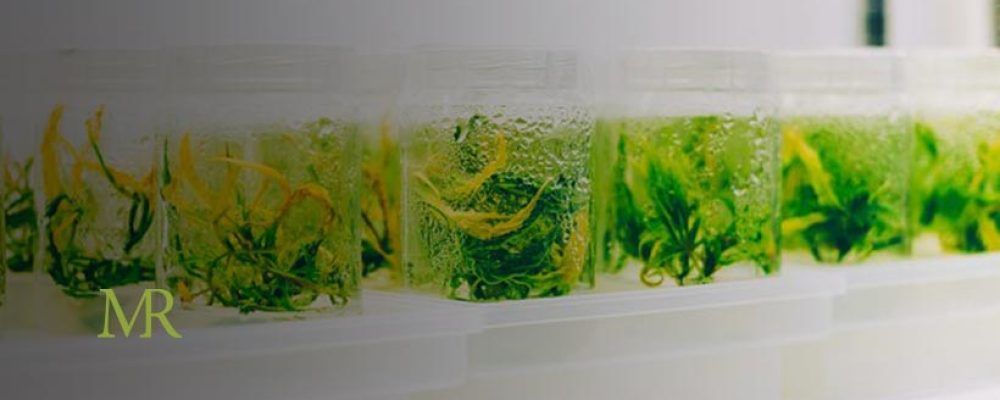The future of cannabis cloning is here and already making a splash in the commercial cannabis industry. Enter plant tissue culture cloning: a revolutionary technique that can help preserve genetics, increase yields, and optimize cannabis businesses’ entire cultivation venture. Here’s everything you need to know about cloning cannabis with plant culture tissues.
What is plant tissue culture?
Plant tissue culture, also known as micropropagation, is the process of using tissue culture from mother plants to propagate clones. The plant tissues collected are placed in a sterile environment or container with gelling media, which delivers the developing plants the vitamins, nutrients and hormones needed to develop healthy roots and shoots for transplanting.
Traditional cloning takes up a ton of space, including space for the mother plant itself. With tissue culture, you need significantly less space and you’re less likely to lose clones to the environment or the tough process of developing roots and shoots. Plant tissue culture makes a copy, or a clone, of the mother plant and preserves its genetics in a sterile environment. Once the plant media has grown, it can be transplanted into a different growing medium for the standard vegging cycle.
Why is tissue culture better than ordinary cloning methods?
With plant tissue culture cloning, there’s a lot to like. For starters, the sterile environment protects new clones from the elements and from possible illnesses and problems that can cause a loss of clones in standard cloning methods. This method thoroughly helps to preserve plant genetics, as well. In the cannabis industry, genetics and large yields turn profits. Tissue culture preserves plants with rare genetics and also secures and continues proprietary genetics.

Image credit: Cannabis Tech
Another benefit is that cloning with plant tissue cultures is so much more space-efficient than traditional methods. The culture cups can be stacked and cared for in a much smaller space than several EZ Cloners, allowing you to utilize your space for more plants. Saving space and saving your ideal genetics makes it easier for businesses and commercial growers to get higher yields and more consistent crops.
Finally, plant tissue culture clones are easier to work with. By the time they’re ready to be transplanted, they’re rooted and ready to grow. It takes the lengthy process of waiting for clones to root and places it in a safer place, making it less likely to have to cull clones that aren’t doing as well, or worse, losing a plant partway into the vegging cycle. While plant tissue cultures will need to be kept in a strictly controlled environment and will need a lot of attention, the new plants will carry excellent genes and are ready to root and yield faster, ultimately making a grow more optimized and efficient.
What does plant tissue culture cloning mean for the cannabis industry moving forward?
Many businesses are considering tissue culture to be the future of cloning for the majority of cannabis businesses, large and small. While it may be a bit complex for home-growers, it can be a saving grace for businesses who can provide sterile environments and meticulous protocols and observations for its ability to optimize the workflow in a commercial grow as well as increase yields and profits and preserve genetics.
More importantly, plant tissue culture cloning may replace conventional methods in the cannabis industry, mainly because there is so much consumer demand to meet. Consumers these days have access to high-quality cannabis. In order to compete, businesses will need to both meet that demand and also satisfy the need for superb flower products.
Plant tissue cultures can improve turnaround times while also increasing yields of sought-after genetics, making it a great choice for cannabis businesses and commercial grows. It’s going to become the new normal in the next few years, and eventually find its place in small grows and even home grows.


